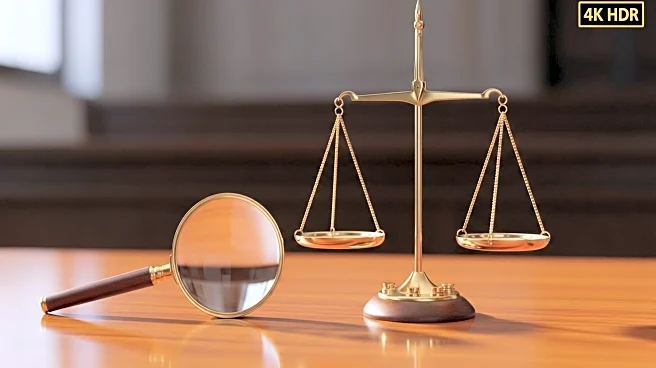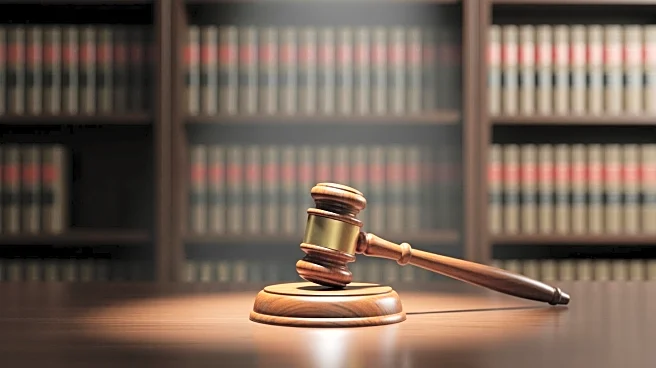What's Happening?
France's outgoing justice minister, Gerald Darmanin, has called for a more robust response to antisemitism in the country. He has urged prosecutors to initiate systematic investigations whenever an elected official or civil servant reports an antisemitic act or statement. This call to action comes amid ongoing tensions related to the Israel-Hamas conflict, which has sparked protests in Paris. Darmanin's directive aims to address the rising concerns about antisemitic incidents and ensure that such acts are thoroughly investigated and prosecuted.
Why It's Important?
The call for systematic investigations into antisemitism by France's justice minister highlights the growing concern over hate crimes and discrimination against Jewish communities. This move is significant as it underscores the government's commitment to combating antisemitism and protecting minority groups. By urging prosecutors to take decisive action, Darmanin is aiming to deter antisemitic behavior and promote a more inclusive society. The directive could lead to increased accountability and potentially reduce the prevalence of antisemitic incidents, thereby fostering a safer environment for Jewish communities in France.
What's Next?
Following Darmanin's directive, it is expected that French prosecutors will begin implementing systematic investigations into reported antisemitic acts. This could lead to a more proactive approach in addressing hate crimes and ensuring justice for victims. Civil society groups and Jewish organizations may also play a role in monitoring the effectiveness of these investigations and advocating for further measures to combat antisemitism. The government's response to this issue will likely be closely watched by international observers and could influence similar policies in other countries facing antisemitic challenges.
Beyond the Headlines
The directive to investigate antisemitism systematically may have broader implications for France's approach to hate crimes and discrimination. It could set a precedent for addressing other forms of bias and intolerance, promoting a more comprehensive strategy for social cohesion. Additionally, this move may influence public discourse on the importance of protecting minority rights and fostering a culture of respect and understanding across different communities.









